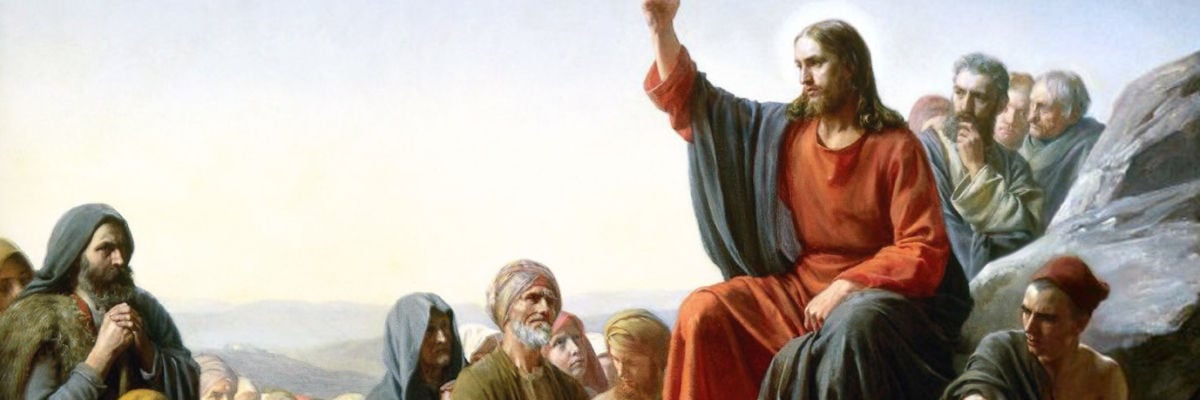
Question:
Answer:
Excerpt from An Exposition of the Gospels of Matthew and Mark:
“Meek,” not those who, from natural temperament or stoical indifference, quietly bear the evils of life; but, those who, from a Christian spirit, patiently endure the evils of this life; if sent by God, without murmuring or repining; if inflicted by man, without retaliation or vengeance, “to no man rendering evil for evil, but overcoming evil by good” (Rom. 12:17–21). To these, who for God’s sake submit to be deprived by the wicked of their inheritance, lands, and possessions here, is appropriately assigned as a reward, the inheritance of lands far more valuable, or the rich inheritance of heaven, hereafter. “Shall possess (in the Greek, shall inherit) the land,” is commonly understood after St. Jerome of the land of the living, viz. heaven, “credo videre bona Domini in terra viventium.” They shall possess the new heavens and the new earth. Indeed, in all these beatitudes, the rewards held out by our Redeemer are heavenly. They all refer to eternal happiness, viewed under different respects. Meekness is very appropriately placed after its kindred virtue of poverty of spirit. One is generally found associated with the other. The words of our Redeemer are very similar to those of David, “mansueti hœreditabunt terram et delectabuntur in multitudine pacis.” (Psalm 26). In the Greek version, this is placed third, in the order of beatitudes. “Blessed are they that mourn” (v. 5), is placed before it, second, in order (4).


